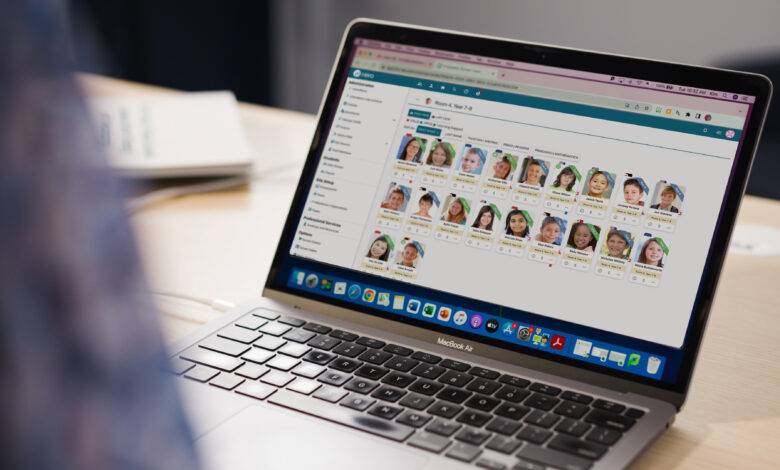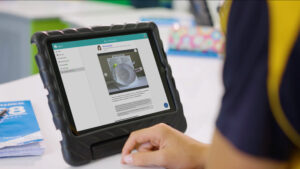How can a school management system make your life easier?
With many elements of running a school combined into one platform, a SMS can make life easier for school staff, parents and students

We know that workloads for both teachers and school administrative staff are always increasing. This means taking advantage of tools to save time and improve efficiency is important. Improving learning outcomes for all students is also paramount.
Read the latest print edition of School News online HERE.
A school management system (SMS) combines several elements of running a school, and tracking student progress, into one platform. A SMS can help to improve workflows and enable data sharing across multiple people and departments.
School management systems can also be highly effective in monitoring and evaluating student performance across a range of metrics on an individual, cohort, or school-wide level. A well-used SMS will benefit all within your school community, including staff, students, and parents and caregivers.
What can a SMS do?
For administration staff, financial administration, incident reporting, event management, student medication tracking, asset and key management and staff absences can be managed through a SMS. Teaching staff can benefit from roll marking tools, daily organisation and timetable reporting, and student academic progress monitoring.
School management systems can also streamline communication between teachers and parents, allow parents to complete permission forms and payments, organise parent teacher interviews, and keep track of their student’s progress.
Paul Sibson, Hero Co-founder and CIO (Chief Innovation Officer), explained: “Modern and secure school management systems improve communication by providing a transparent, real-time link between teachers, students, and families. Through dedicated caregiver apps and community feeds, schools can share progress through learning goals, assessments and examples of student work.
“Parents gain access to real-time feedback fostering more informed, supportive conversations at home. A modern school management system ensures parents understand what their child is learning, how they are progressing, and where support might be needed—building trust, engagement, and shared accountability for learning outcomes.”
Information is stored securely in the SMS platform, meaning parents do not need to download and save school reports. Similarly, teachers can access student data quickly, without having to sort through paper-based files, or digital records.
Online platforms may include sections for staff, students and parents from the one site. To maintain privacy and confidentiality of all parties, systems can be configured so that users can only access information relevant to them. Teachers, for example, may have access to a student’s full academic history, while administrative staff can only view their contact details; parents would only be able to view data for their own student. Most systems will incorporate an app to make access simpler for parents.

Is it time to upgrade?
Given the wide range of tools available in a SMS, it’s important to make sure your school has the right school management system. While you may currently have a system in place, it’s worth considering if it’s still fit for purpose, or if you need to upgrade. Expanding enrolments and staff numbers, adding new year levels or subjects, or moving to a new campus may all mean your system needs upgrading.
And with technology always evolving, new features and capabilities are often added to SMS platforms.
Mr Sibson said recent developments in SMS capabilities include the integration of real-time assessment tools, smart grading, and systems for tagging evidence against curriculum goals.
“These features enable educators to capture, assess, and share student learning seamlessly. Longitudinal data tracking supports early identification of at-risk students, while collaborative analysis tools allow teaching teams to moderate and reflect on student work collectively.
“This transformation of compliance-based reporting into meaningful, evidence-rich narratives enhances instructional planning and fosters a culture of continuous improvement grounded in real student data.”
Talk to your current SMS provider to ensure you’re getting everything you can from your system. Technological developments might mean new features may have been added that you weren’t aware of, or features that you didn’t need in the past might prove useful now. Conversely, make sure you are using all the features included in your plan, and are not being charged for things you don’t need or want.
“Importantly, school management systems can be highly customisable,” Mr Sibson said. “Features such as flexible data cards, configurable tagging of learning evidence, and tools aligned with school-specific goals or curriculum standards allow schools to tailor the platform to their context. This supports unique workflows, school priorities, and curriculum implementation strategies. By accommodating different teaching styles, leadership approaches, and intervention models, these systems can evolve with the school’s needs and support consistent improvement over time.
“All of this can be achieved whilst also meeting the highest standards of security and privacy.”
If you do decide to upgrade your system or change providers, ensure this is communicated to your school community. Staff will need to be provided with training to ensure they can use the system to its full potential, and families must be given sufficient information about any changes to school communication or policies and procedures, and how to access information in the new system.
Also ensure enough time is scheduled to migrate data from one system to the other, with minimal disruption to school operations. School holiday periods might be a good time to change or upgrade your system to ensure it is fully functioning when students are on campus. Key staff may need to be onsite during the transition to ensure it runs smoothly, and to receive training.









